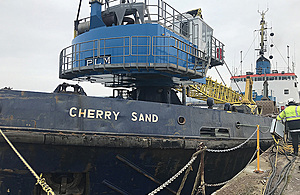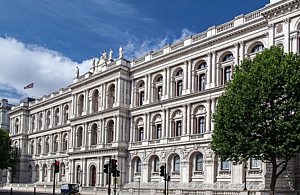O governo britânico adicionou nesta semana £215 milhões (R$1,5 bilhão) aos seus investimentos em pesquisa e produção de vacinas para o novo coronavírus. Os recursos estão divididos em:
-
£84 milhões (R$ 588 milhões) em apoio à pesquisa para a Universidade de Oxford e o Imperial College of London, que já têm vacinas candidatas em estágio de testes em seres humanos;
-
£93 milhões (R$ 651 milhões) para a implementação do Centro de Inovação e Produção de Vacinas (VMIC), que poderia começar a produzir vacinas em massa no segundo semestre de 2021;
-
£38 milhões (R$ 266 milhões) para uma fábrica de implementação rápida, capaz de produção massiva de vacinas já no segundo semestre de 2020, até a inauguração do VMIC.
O investimento em pesquisas será direcionado aos dois centros que são os candidatos mais avançados à descoberta da vacina. A Universidade de Oxford, que deverá receber £65,5 milhões, concluiu recentemente um acordo de licenciamento global com a farmacêutica britânica AstraZeneca, para comercialização e produção de sua potencial vacina. Isso significa que, caso a vacina de Oxford seja bem-sucedida, a AstraZeneca deve disponibilizar até 30 milhões de doses para os britânicos até setembro de 2020. Além disso, o Imperial College of London receberá £18.5 milhões para pesquisas, aumentando as chances de sucesso na busca por uma vacina para Covid-19.
O Reino Unido considera que a descoberta de uma vacina é a principal medida para avançar no combate à pandemia e alcançar um estágio em que o distanciamento social deixe de ser imperativo. O ministro Alok Sharma, que chefia a pasta de Negócios, Energia e Estratégia Industrial, afirmou que “o Reino Unido continua a liderar a resposta global para encontrar uma vacina, e o governo está apoiando os cientistas para concluir este trabalho o mais rápido possível. Se a vacina de Oxford funcionar, o povo britânico terá acesso rápido a ela, ajudando a proteger milhares de vidas”.
Centros de Produção
Os britânicos estão se preparando para produção em massa da vacina, assim que ela estiver disponível. Para isso, será inaugurado no segundo semestre de 2021 o Centro de Inovação e Produção de Vacinas (VMIC, na sigla em inglês). O investimento anunciado vai adiantar em 12 meses a inauguração da instalação, antes prevista para 2022. Até o momento, os setores público e privado do Reino Unido acumulam £201 milhões para construir este centro, que ficará baseado no Harwell Science and Innovation Campus, na cidade de Oxfordshire. A fábrica, que já está em construção, é um componente fundamental no programa britânico para a vacina do novo coronavírus e para garantir que, assim que estiver disponível, ela possa ser produzida rapidamente e em quantidades massivas. O VMIC também vai ser usado para produzir vacinas para outras doenças, como o vírus da gripe. Enquanto o VMIC é construído, o Reino Unido iniciará a instalação de uma fábrica de implementação rápida, com investimento de £38 milhões, para começar a produção em escala a partir do segundo semestre de 2020. Este centro irá apoiar os esforços para garantir que uma vacina esteja amplamente disponível para o público assim que possível.
Nova liderança para mobilizar esforços
O Reino Unido confirmou ainda o nome de Kate Bingham como líder da Força-Tarefa de Vacinas. O grupo foi estabelecido pelas lideranças científicas do governo britânico, formada pelo Conselheiro Científico Chefe, Vice-Conselheiro Médico, ministro dos Negócios e o ministro da Saúde, para comandar os esforços do país na busca de uma vacina contra a COVID-19.
Este é um cargo intergovernamental e Kate Bingham estará subordinada diretamente ao primeiro-ministro. Ela é uma figura de excelência no setor das Ciências da Vida e sua nomeação vai possibilitará que a Força-Tarefa acelere o desenvolvimento de uma vacina segura e efetiva, uma das soluções de longo prazo para controlar a pandemia do coronavírus no futuro próximo, salvando vidas sem o distanciamento social e o monitoramento de contatos.
Kate irá coordenar o trabalho que já está sendo desenvolvido pelo Governo, Academia e Indústria para o desenvolvimento rápido das vacinas e garantir que, assim que uma opção viável estiver disponível, possa ser produzida em escala e ofertada ao público, tanto no Reino Unido, quanto no resto do mundo. O Reino Unido é o líder global nesses esforços através da Coalizão para Inovação em Prontidão para Epidemias e receberá a Conferência Global para Financiamento da Gavi, a Aliança das Vacinas, no próximo dia 04 de junho.


